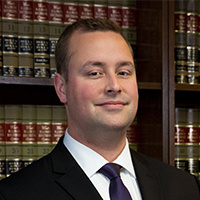Byron Reorganization Lawyer, Illinois
Sponsored Law Firm
-
 x
x

Click For More Info:
-
PMJ PLLC
100 S State St Chicago, IL 60603» view mapBankruptcy & Debt Working Relentlessly For You
Patrick is the Founder of PMJ PLLC and has more than 20 years of experience.
800-901-4721
Not enough matches for Byron Reorganization lawyer.
Below are all Byron Bankruptcy & Debt lawyers.
Thomas Laye
✓ VERIFIEDAccident & Injury, Divorce & Family Law, Estate, Bankruptcy & Debt, Business
Thomas was born and raised in Cherry Valley, Illinois. He attended Western Illinois University where he received his Bachelor’s in Law Enforcement a... (more)
Gary Flanders
Bankruptcy & Debt, Commercial Bankruptcy, Consumer Bankruptcy, Bankruptcy
Status: In Good Standing Licensed: 44 Years
FREE CONSULTATION
CONTACTConstance Augsburger
Civil Rights, Collection, Estate Planning, Federal Appellate Practice
Status: In Good Standing Licensed: 41 Years
David Francis Monteleone
DUI-DWI, Civil Rights, Collection, Medical Malpractice
Status: In Good Standing
Thomas R. Jakeway
Banking & Finance, Corporate, Contract, Credit & Debt
Status: In Good Standing Licensed: 21 Years
Raymond Melton
Divorce & Family Law, Criminal, Corporate, Collection
Status: In Good Standing Licensed: 25 Years
Thomas Mark Fabiano
DUI-DWI, Civil Rights, Bankruptcy, Medical Malpractice
Status: In Good Standing Licensed: 32 Years
Thomas Fabiano
DUI-DWI, Civil Rights, Bankruptcy, Medical Malpractice
Status: In Good Standing Licensed: 32 Years
 Patrick Jones Chicago, IL
Patrick Jones Chicago, IL Practice AreasExpertise
Practice AreasExpertise

